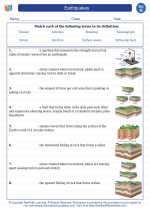Testes
The testes are the male reproductive organs responsible for producing sperm and the hormone testosterone. They are located outside the body within the scrotum, which helps regulate the temperature of the testes to ensure proper sperm production.
Anatomy of the Testes
The testes are oval-shaped glands about the size of a large olive. They are composed of seminiferous tubules, where sperm production occurs, and interstitial cells, which produce testosterone.
Sperm Production
Sperm production, or spermatogenesis, takes place within the seminiferous tubules. Spermatogonium, the stem cells, undergo a series of divisions and differentiations to ultimately form mature sperm cells, or spermatozoa.
Testosterone Production
The interstitial cells, also known as Leydig cells, are responsible for producing testosterone. Testosterone is essential for the development of male reproductive tissues, as well as secondary sexual characteristics such as muscle mass, deepening of the voice, and facial hair growth.
Regulation of Testosterone
Testosterone production is regulated by the luteinizing hormone (LH) released from the pituitary gland. LH stimulates the interstitial cells to produce testosterone, which in turn feeds back to regulate the production of LH through a negative feedback loop.
Common Disorders
Disorders of the testes can include conditions such as testicular cancer, cryptorchidism (undescended testes), and testicular torsion. It's important to perform regular self-examinations and seek medical attention if any abnormalities or changes are noticed.
Study Guide
- What are the functions of the testes?
- Describe the anatomy of the testes and the structures involved in sperm production.
- Explain the process of spermatogenesis.
- What is the role of testosterone in the male body?
- How is testosterone production regulated?
- Discuss the potential disorders or conditions that can affect the testes.
[Testes] Related Worksheets and Study Guides:
.◂Science Worksheets and Study Guides Eighth Grade. Earthquakes
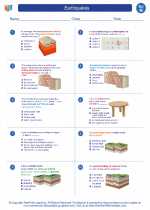
 Worksheet/Answer key
Worksheet/Answer key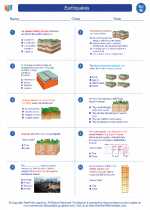
 Worksheet/Answer key
Worksheet/Answer key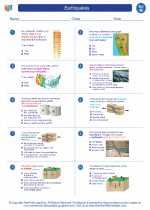
 Vocabulary/Answer key
Vocabulary/Answer key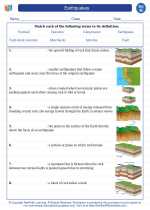
 Vocabulary/Answer key
Vocabulary/Answer key
 Vocabulary/Answer key
Vocabulary/Answer key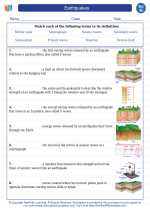
 Vocabulary/Answer key
Vocabulary/Answer key